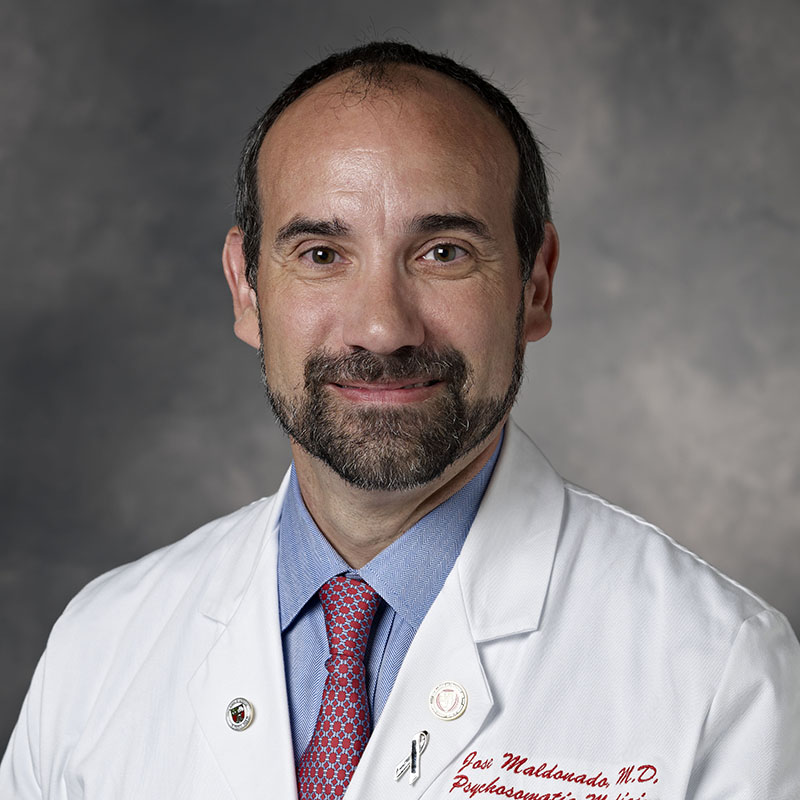Delirium Update 2024
- APA Headquarters in Washington, D.C.
- Friday, March 8, 2024
Delirium is a neurobehavioral syndrome caused by the transient disruption of normal neuronal activity due to disturbances of systemic physiology. It is also the most common psychiatric syndrome found in the general hospital setting, causing widespread adverse impact to medically ill patients. Studies have demonstrated that the occurrence of delirium is associated with greater morbidity, mortality, and a number of short and long-term problems. Short-term patients suffering from delirium are at risk of harming themselves (e.g., falls, accidental extubation) and of accidentally injuring their caregivers due to confusion, agitation, and paranoia. Long-term, delirium has been associated with increased hospital-acquired complications (e.g., decubitus ulcers, aspiration pneumonia), a slower rate of physical recovery, prolonged hospital stays, and increased placement in specialized intermediate and long-term care facilities. Furthermore, delirium is associated with poor functional and cognitive recovery, an increased rate of cognitive impairment (including increasing rates of dementia), and decreased quality of life. In fact, growing data suggests that the development of delirium might be one of the modifiable precursors for the development of early cognitive impairment, including dementia.
Objectives
- Identify the strengths and weaknesses of various screening and diagnostic instruments used for the detection of delirium.
- Recognize the main risk factors for the development of delirium in the clinical setting.
- Understand the evidence supporting the use of non-pharmacological techniques (e.g., light therapy, early mobilization) in delirium prevention and treatment.
Presenter

Jose R. Maldonado, M.D., FACLP, FACFE
Dr. Maldonado is the John & Terry Levin Family Endowed Professor of Medicine; Chief - Division of Medical Psychiatry, Stanford University School of Medicine; and Medical Director of the Critical Care Psychiatry Service. He is board certified in Adult Psychiatry, Consult-Liaison Psychiatry, Forensic Psychiatry, Addiction Medicine, and Forensic Medicine. His area of specialty and study includes the interface of psychiatry, medicine, and neurology, in particular the neurobehavioral complications of medical illness and neurological disorders. Dr Maldonado served as President of and continues to be a member of the Board of Directors of the American Delirium Society. More recently, Dr Maldonado is the lead developer of a new specialty within Medical Psychiatry: Critical Care Psychiatry. As such, he is the founder and first Chair of the Critical Care Psychiatry Special Interest Group (SIG) at the Academy of Consultation Liaison Psychiatry.
His research lab developed the Stanford Integrated Psychosocial Assessment for Transplantation (SIPAT) created to assess the psychosocial candidacy of organ transplant and ventricular assisted devices (VADs) recipients, as well as that of potential living donors. In addition, his research has led the field of Consultation Psychiatry/Psychosomatic Medicine with the development of tools for the prediction and assessment of various neuropsychiatric disorders; including the development of a new tool for the timely and accurate diagnosis of delirium: the Stanford Proxy Test of Delirium (S-PTD), which in recent studies have been found to be more effective than the previously most commonly used tool the Confusion Assessment Methods, when compared against a blinded neuropsychiatric assessment based on DSM5 criteria (92% vs 34%); the Stanford Algorithm for Predicting Delirium (SAPD), a tool to help predict patients at risk for developing delirium; and the Prediction of Alcohol Withdrawal Severity Scale (PAWSS), which have been found to have a diagnostic accuracy of 94.5%. He has developed management protocols and algorithms for the prevention and treatment of delirium; as well as novel pharmacological techniques for the prophylaxis and treatment of complicated alcohol withdrawal syndromes (i.e., benzodiazepine-sparing protocol).
Dr. Maldonado has been the recipient of multiple awards and recognitions, the most recent ones include: the Sawlow Memorial Award on Neuroscience from the Oregon Health & Science University for his work on the pathophysiology and management of delirium; the 2017 – Franz-Köhler-Inflammation-Award from the German Society of Anesthesiology and Intensive Care Medicine (DGAI) for extraordinary achievements in research on inflammation and its relationship to the pathophysiology of delirium; and the 2018 – Eleanor and Thomas P. Hackett Memorial Award by the Academy of Consultation-Liaison Psychiatry, the Academy’s highest honor, for distinctive achievements in CLP training, research, clinical practice, and leadership..
| Friday, March 8 | |
|---|---|
| 9:00 – 9:10 a.m. | What is Delirium: Evolution from Hippocrates to DSM5/ICD10 |
| 9:10 – 9:25 a.m. | Delirium Consequences: Why Should We Care |
| 9:25 – 9:50 a.m. | Diagnostic Criteria/Tools & Technologies – Delirium Subtypes |
| 9:50 – 10:15 a.m. | Pathophysiology of Delirium |
| 10:20 – 10:45 a.m. | Neuropathogenesis of Delirium |
| 10:15 – 10:30 a.m. | Break |
| 10:30 – 10:45 a.m. | Delirium’s Long Term Neuropsychiatric Sequelae |
| 10:45 a.m. – 11:00 p.m. | Cognition Impairment & Delirium – A Review of Their Reciprocal Relationship |
| 11:00 – 12:00 p.m. | Lunch |
| 12:00 – 2:45 p.m. | Alcohol Withdrawal Delirium: Neurobiology & Novel Treatment Techniques |
| 2:45 – 3:00 p.m. | Discussion and Q&A |
